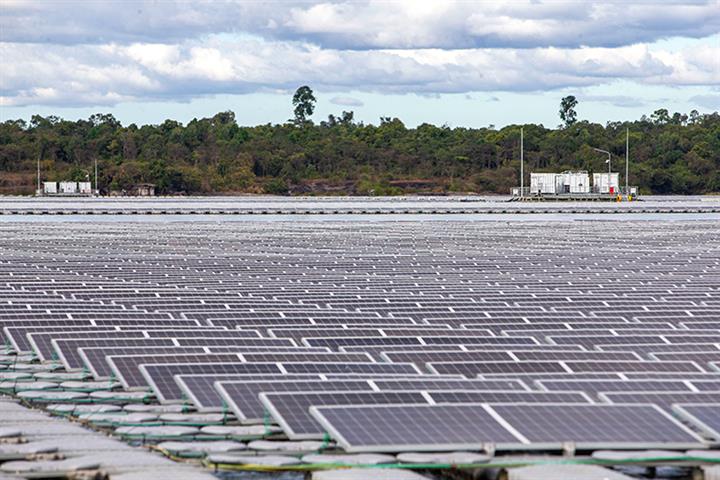 Chinese Firms to Benefit From South, Southeast Asian Green Energy Efforts, Experts Say
Chinese Firms to Benefit From South, Southeast Asian Green Energy Efforts, Experts Say(Yicai Global) March 22 -- Nations in South and Southeast Asia are working toward a renewable energy transition that could in turn benefit Chinese industries, experts said at a meeting organized by the Philippine non-governmental organization People of Asia for Climate Solutions and NLS, a Chinese energy information platform.
The Philippines has launched a series of renewable energy transition actions and President Ferdinand Marcos Jr. has given it great importance, Alberto Dalusung III, former director of the Philippine energy department, noted at the meeting yesterday.
To attract more foreign investors, the Philippines pushed through a law allowing overseas firms to fully own local renewable power plants and introduced a priority dispatch for all renewable power plants last year, Dalusung added.
The new policies will positively affect firms along Chinese coastal regions because they very much recognize the Philippines’ investment and business environment, according to Renmin University of China's Wang Peng.
Member countries of the Association of Southeast Asian Nations are rich in natural resources, and China has a technological advantage, as it generates 80 percent of the world's photovoltaic power and owns two-thirds of global wind power gear, Wang said. China's exports of new energy goods doubled in the first nine months of last year, according to data from the General Administration of Customs.
Indonesia aims for 23 percent of its energy supply to be converted to renewable energy by 2025 and 31 percent by 2050, according to the International Renewable Energy Agency. The country has high horizontal solar irradiation, but photovoltaic power accounts for less than 1 percent of its electricity generation, so there is great potential, Beyrra Triasdian, an Indonesian renewable energy program manager, told Yicai Global.
Pakistan is a strong proponent of green energy, said Mirza Hamid Hassan, the country's former federal secretary of water and power. The country is one of the seven nations most vulnerable to the impact of climate change, according to research by the Intergovernmental Panel on Climate Change, and it suffered from the worst floods in a century last year, which killed more than 1,700 people, he noted.
Pakistan has had severe electricity and natural gas shortages in the last few years, so the government is eager to find green, clean, and affordable energy, Hassan stressed. It is using market incentives for energy transition and various climate funds, with solar equipment enjoying duty-free importation and sales tax exemption, and is offering cheap land for green projects in its special economic zones, he added.
Chinese companies can help Pakistan's indigenization by building solar panel manufacturing plants, wind turbines, and related equipment in these zones, with many China-based companies already setting up business in Pakistan, Hassan said.
For Bangladesh to become a developed country by 2041, it will have to industrialize and create solar technology opportunities, said Shahriar Ahmed Chowdhury, director at the Center for Renewable Energy Services. The country has great solar and wind potential and is applying financial incentives for renewable energy, he noted.
Editor: Martin Kadiev